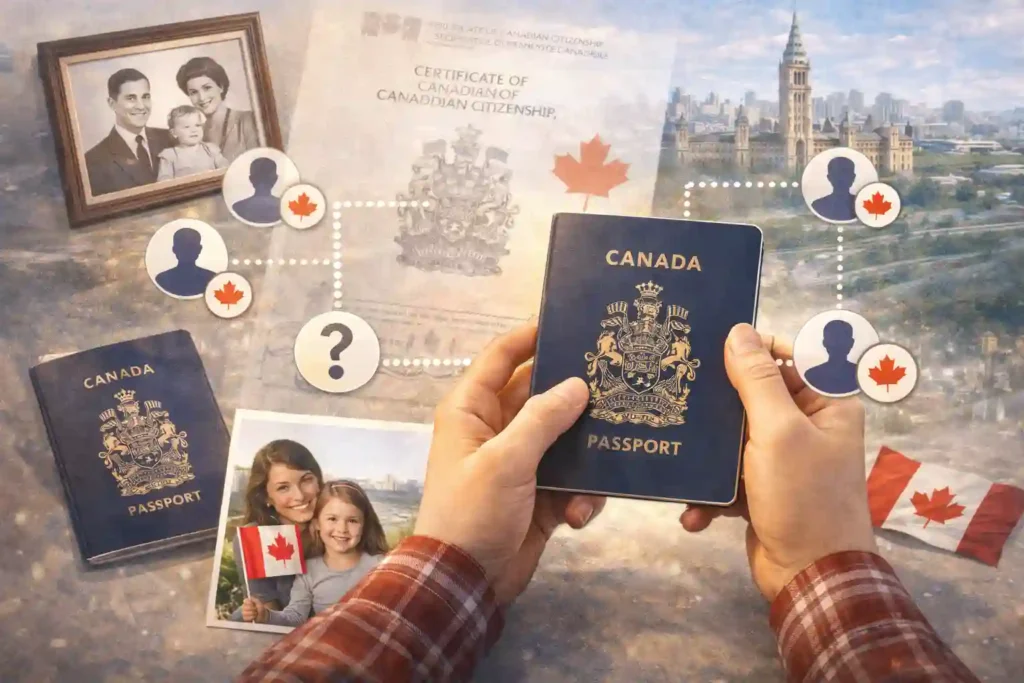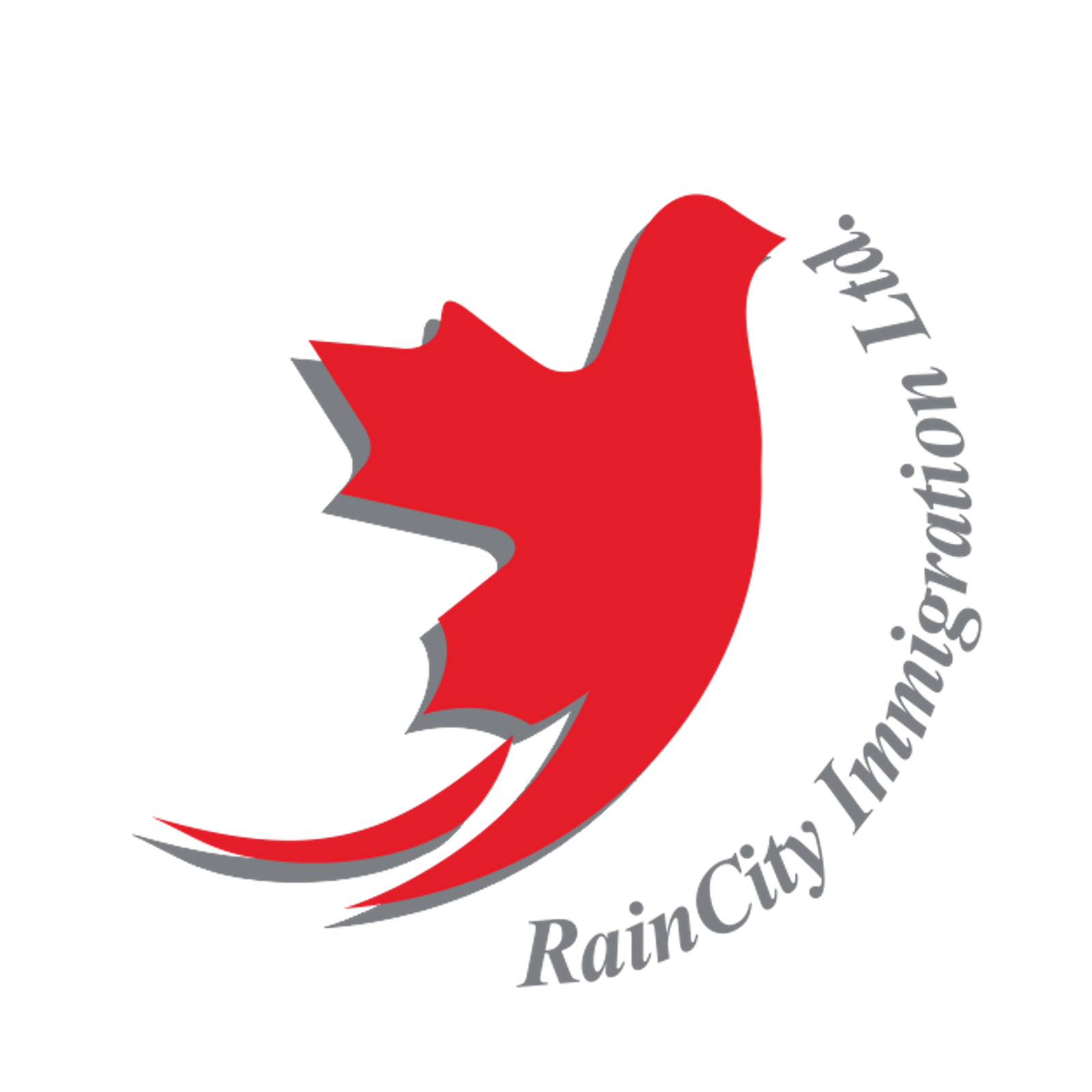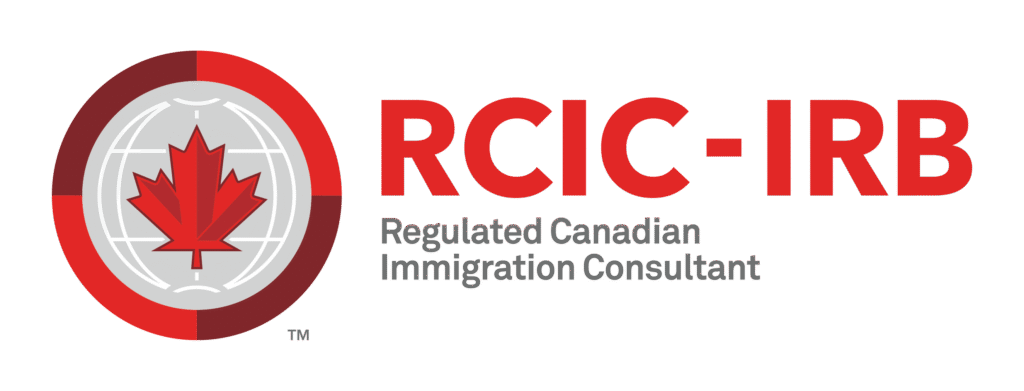How to Apply for a Canadian Passport with Inherited Citizenship (Citizenship by Descent)

Even if you were born outside of Canada, you might still be eligible for Canadian citizenship by descent — meaning that your citizenship is inherited from a Canadian parent or grandparent. However, to apply for a Canadian passport, you must first have an official document proving your citizenship, such as a Canadian citizenship certificate.
This guide explains who qualifies for citizenship by descent, what to do if you’re affected by the first-generation limit, and how to apply for both a citizenship certificate and a Canadian passport.
Who Qualifies for a Canadian Passport?
Only Canadian citizens can apply for a Canadian passport. Having one is not mandatory to enter Canada as a citizen, but it makes reentry much faster and easier at the border.
If you were born outside Canada but have a parent who was born in Canada, you qualify for citizenship by descent. To prove it, you’ll need to apply for a Canadian citizenship certificate from Immigration, Refugees and Citizenship Canada (IRCC).
However, under current law, citizenship by descent is restricted by the First-Generation Limit (FGL).
⚠️ What is the First-Generation Limit?
The FGL means that:
If your Canadian parent was also born outside Canada and inherited their citizenship from a Canadian grandparent, you do not automatically qualify for citizenship by descent.
In short, only the first generation of children born abroad to a Canadian citizen can automatically obtain citizenship by descent.
Interim Measures for Those Affected by the FGL
In March 2025, the federal government introduced interim measures allowing some individuals affected by the FGL to apply for discretionary citizenship grants.
This change followed a 2023 Ontario Superior Court ruling that found the FGL unconstitutional. Since then, the government has introduced temporary steps to help those impacted.
You may apply for a discretionary grant of citizenship if you fall under one of the following four scenarios:
Born or adopted before December 19, 2023, and affected by the FGL.
Born or adopted on or after December 19, 2023, affected by the FGL, and your Canadian parent met the “substantial connection to Canada” test (spent at least 1,095 days in Canada before your birth or adoption).
Born before April 1, 1949, and affected by the FGL.
Lost citizenship due to failure to meet past retention requirements (former section 8 of the Citizenship Act).
How to Apply for a Discretionary Grant of Citizenship
If you meet one of the above criteria, you can apply for a discretionary grant.
Steps:
Apply for a citizenship certificate first.
IRCC reviews your case to confirm eligibility.
If eligible, you’ll receive an invitation to apply for citizenship under subsection 5(4) of the Citizenship Act.
Once approved, you’ll become a Canadian citizen and can apply for a Canadian passport.
How to Apply for a Canadian Citizenship Certificate
To prove your citizenship, apply for a citizenship certificate either online or on paper through IRCC.
Steps to apply:
Get the application package (includes instruction guide, forms, and checklist).
Provide required documents (proof of parent’s citizenship, ID, birth certificate, etc.).
Pay the fee: CAD $75.
Submit the application to the correct office (based on your country of residence).
Processing time: about 7 months.
🟢 Once approved, you’ll receive a citizenship certificate — proof that you are a Canadian citizen.
Note: This certificate is not a travel document; it only proves citizenship. To travel, you must apply for a Canadian passport.
Applying for a Canadian Passport
Once you have your citizenship certificate, you can apply for either a 5-year or 10-year passport.
You’ll need:
Completed application form (PPTC 153)
Guarantor and two references
Canadian citizenship certificate
Proof of identity (e.g., foreign passport)
Two passport photos
Fees:
| Passport Type | Fee |
|---|---|
| 5-year (Adult) | $120 |
| 10-year (Adult) | $160 |
Processing time: 10–20 business days.
You can apply at any Service Canada location or by mail.
Proposed Changes to the Citizenship Act
In June 2025, the government introduced Bill C3: An Act to Amend the Citizenship Act (2025).
If passed, Bill C3 will allow citizenship by descent beyond the first generation, provided that the parent can prove a substantial connection to Canada (at least 1,095 days in the country).
The bill has passed its second reading in Parliament and, once approved by both the House of Commons and Senate, and receives Royal Assent, it will become law — potentially restoring citizenship rights to thousands of Canadians abroad.
Summary
You can inherit Canadian citizenship if your parent was born in Canada.
If your parent was born abroad, you may still qualify under interim measures or Bill C3 (once enacted).
You must first apply for a citizenship certificate, then use it to apply for a Canadian passport.
Passport processing usually takes 2–3 weeks, and citizenship certificates take about 7 months.

